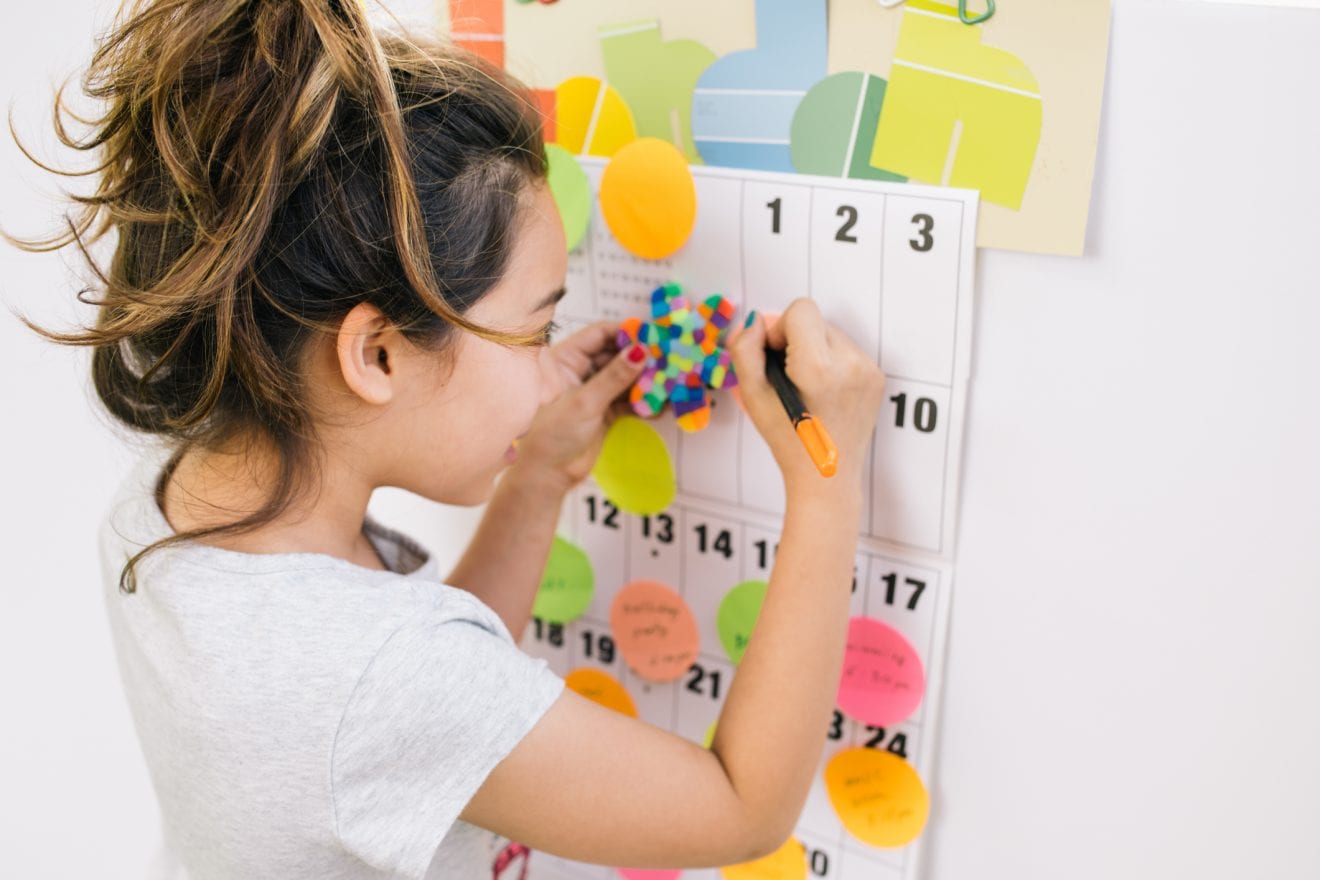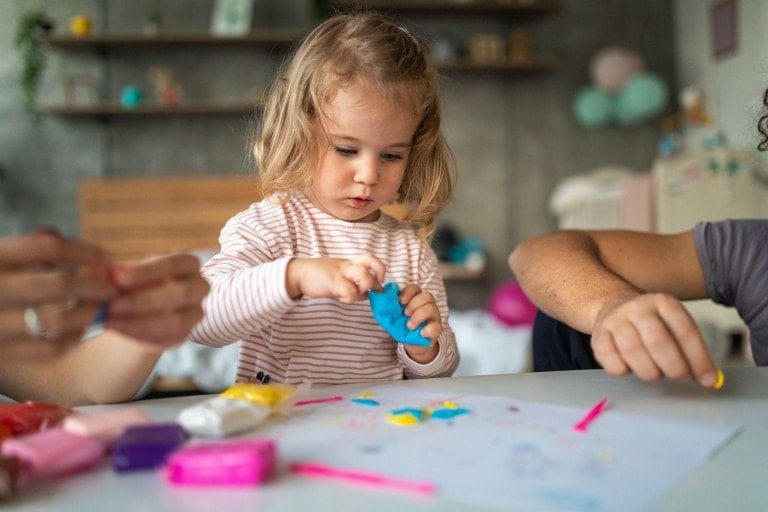Suddenly becoming a homeschooling mom can be a bit overwhelming. Everyone is frazzled and flustered because of the lack of their regular schedule. Maybe the kids are reluctant to do anything because they feel like they’re on vacation. Perhaps you are reluctant to homeschool because you have no idea how to start! If you feel stressed adjusting, rest assured you are not alone!
One of the best ways to get started is by setting an easy, flexible homeschool schedule that you and your kids will thrive on.
But what does a flexible homeschool schedule look like? Not that complicated, to be honest. Any schedule that works for your family will do. But here is a great sample schedule for a 4-year-old and older to give you an idea of how to structure your flexible homeschool schedule:
Sample Flexible Homeschool Schedule
8:30 Wake Up / Chores
Let kids wake up on their own to ensure they get the rest they need. Brush teeth, make beds, and get dressed.
8:45 Breakfast
We make our green smoothie because it’s easiest for us, but an excellent healthy breakfast of any variety will do.
9:15 Meditation
Stretching/free movement (see: six yoga poses to do with your child), writing a gratitude list, and quick 10-minute meditation to set the intention for the day. There are many meditation videos for kids on YouTube or you can use the Calm app. Make sure to drink a glass of water after meditating!
9:30 Free Play
Puzzles, toys, books, coloring – kids’ choice! They must clean up all activities before starting a new activity.
10:15 Snack
Waffles and honey, Greek yogurt and berries, a banana with almond butter, or another healthy snack. Avoid sugary foods to keep the immune system strong.
10:30 Morning Activity
Morning activity time! Try a craft, play with slime, or explore a sensory bin. You can also do a scavenger hunt, paint, or create with Play-Doh.
11:30 Online Learning
Let the kids use technology to learn for an hour. ABC Mouse, other learning apps, or videos from Discovery Education are great options. Sit with your younger kids and help them so it’s more engaging. Older kids can do it on their own with initial instructions and ask for help as needed.
12:30 Lunch
1:30 Outside Play
Get movin’ outside. Vitamin D and exercise boost kids’ immune systems!
2:30 Nap or Quiet time (2 hours)
2 hours of quiet time or nap time. Older kids who don’t nap can read or use the iPad.
4:30 Afternoon Activity
Anything hands-on is fair game! You can color, cook, create a cardboard house from boxes, paint kindness rocks, etc.
5:30 Free Play / Dinner
Free play while mama (or papa!) cooks dinner. Dinner is a great time to talk about the day. Playing a rose, thorn, and a bud is an excellent game for everyone to share one good thing about their day, one challenge from their day that they need more support for, and something they are looking forward to.
Adjust As You Go
Although this is a great general schedule, every family has a different rhythm. Adjust the schedule to fit your needs. For example, we put our 4-year-old to bed later at night, so he takes a nap late in the afternoon. Other 4-year-olds I know don’t take any naps at all. Every family and its scheduling needs are unique.
You may also need to adjust the schedule as you get into it. It’s not a bad idea to start with a good flexible homeschool schedule, like the one above, and then make adjustments based on how your family responds. You may need to do this several times as you find your own unique rhythm. That’s normal! Just keep adjusting as necessary until you find the schedule that works for you.
Give Kids Some Control
As you plan your week, allow the kids to choose how their days will go. Psychologists agree that providing young children opportunities to make choices and have a say in their day builds respect, invites cooperation, develops problem-solving skills, and capitalizes on their normal human need for power and control.1 When parents allow their kids to use their voice and make decisions independently, it strengthens the bond between parent and child.
Here are some great ways to allow kids to make choices in their flexible homeschool schedule. They can choose:
- what healthy snacks to eat (give younger kids two options)
- which activity they want to do in the morning and the afternoon
- which learning app they want to use
- what lunch to eat (again, give two choices for toddlers and even elementary school kids)
- what to play outside
- what to make for dinner
Print and Display
Once you finally have your flexible homeschool schedule worked out, print it out and display it where the whole family can see it. Review your schedule every morning during breakfast to set expectations for the day. Breakfast is also an excellent time for the kids to decide what activities and snacks they choose that day.
Of course, no schedule, no matter how flexible, is perfect all the time. I call parenting toddlers beautiful chaos. So if you need to work on a project for work and keep your kid quiet for a bit, it’s okay to put on Frozen II for the hundredth time. After you’re done, jump back into the schedule and rearrange times as needed—or skip some things altogether. Don’t stress yourself out too much by following your schedule perfectly. After all, this is supposed to be a flexible schedule! And keep your chin up, mama, because I guarantee you’re doing a phenomenal job!






























